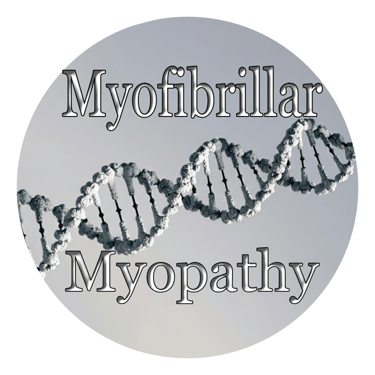MFM7 KY
Autosomal recessive inheritance
We describe a new early-onset neuromuscular disorder due to a homozygous loss-of-function variant in the kyphoscoliosis peptidase gene (KY).
Homozygous loss of function variants in the gene kyphoscoliosis peptidase (KY) have primarily been implicated as a cause of rare neuromuscular phenotypes such as myofibrillar myopathy (MFM). The MFMs are a heterogeneous group of hereditary muscle diseases characterized by ectopic protein aggregates and a distinct pattern of myofibrillar disorganization (Fichna et al., 2018). Two reported variants, NM_178554.6:c.405C > A; p.(Tyr135Ter) and NM_178554.6:c.1071delG; p.(Thr358LeufsTer3) cause MFM7, characterized by pes cavus, muscular weakness and reduced reflexes in two Arab-Israeli brothers (Straussberg et al., 2016), and a Turkish girl (Hedberg-Oldfors et al., 2016), respectively. Another study reported a frameshift variant, NM_178554.6:c.51_52insTATCGACATGTGCTGTATCTATCGACAT; p.(Val18TyrfsTer56) causing hereditary spastic paraplegia (HSP) in twelve Arab-Bedouin individuals (Yogev et al., 2017). More recently, an Iranian patient with lower limb deformity and motor disorders was found to have a nonsense NM_178554.6:c.415C > T; p.(Arg139Ter) variant in KY (Ebrahimzadeh-Vesal et al., 2018).
kyphoscoliosis peptidase


